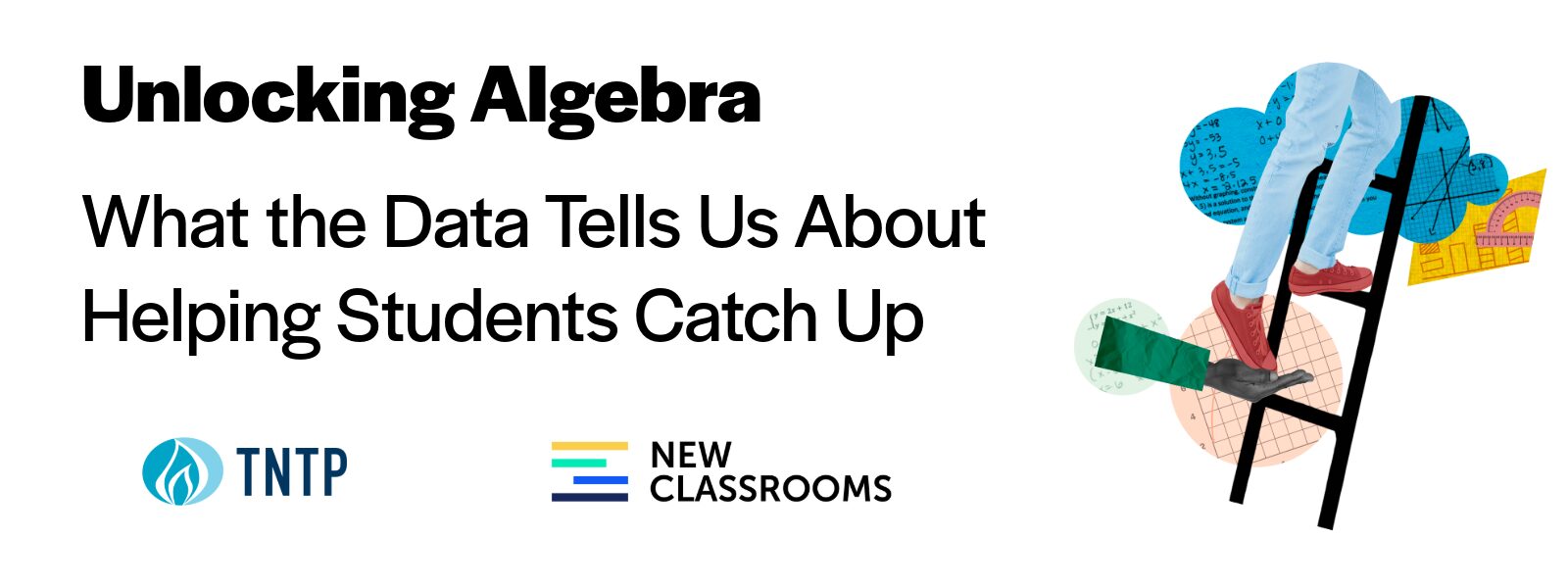
Unlocking Algebra: What the Data Tells Us About Helping Students Catch Up – asks the question: What is the best way to support Algebra I instruction for students who begin the year well below grade level? With billions of dollars spent on new curricula and instructional materials, why are NAEP scores still showing that barely one in four 8th graders are proficient in math? This report provides a possible explanation.
Why Algebra
Algebra I is the gateway to higher-level math, college and career readiness. Students who pass Algebra I by ninth grade are more likely to graduate high school, attend college, and earn higher salaries when they enter the workforce. Students who fall behind face steep odds of never completing Algebra I by ninth grade. TNTP partnered with New Classrooms to analyze three years of data from more than 2,000 Algebra I students using New Clasroom’s online learning platform Teach to One Roadmaps. This data was also mapped to state testing data to compare student mastery of skills in the online platform versus their test scores.
Here’s What TNTP Found
1. Algebra proficiency improves when students learn new algebra-related concepts and skills, including those from prior grades. Many students who entered Algebra I knew only one-third of the algebra-related concepts and skills from prior grades. As these students learned more concepts and skills related to algebra—both from their current grade and from previous ones—they performed better on state tests.
2. Learning new algebra-related concepts and skills requires applying key predecessor concepts and skills. Students who started Algebra I with unfinished learning didn’t need to learn every concept and skill they missed in prior grades before attempting something new. Instead, learning the most critical predecessors meaningfully increased their chances of acquiring new algebra-related concepts and skills.
3. Tier 2 support is most effective when students build on what they know. Over the course of a year, students who start with unfinished learning can make up the most ground when their Tier 2 support is tailored to their knowledge of key predecessors. In this approach, each student works on the most advanced algebra-related concepts and skills, at any grade level, that they are best equipped to learn.